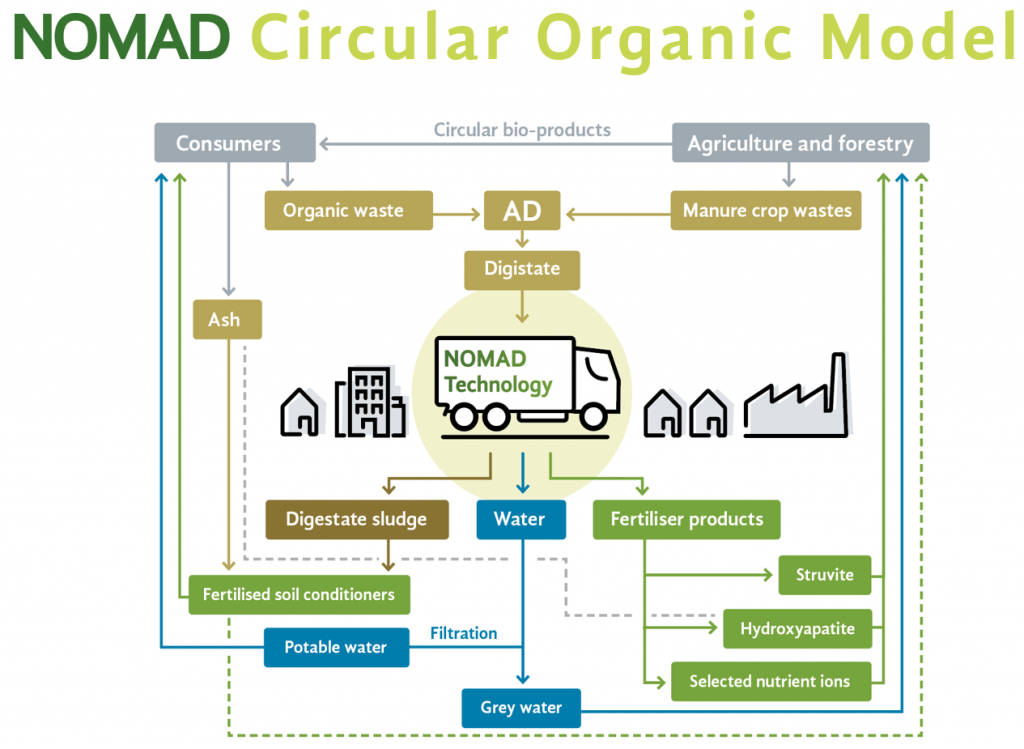Title: Novel Organic recovery using Mobile ADvanced technology
Acronym: NOMAD
Funding: Horizon 2020 | CE-SFS-39-2019
Lead Applicant: ETHNIKO KENTRO EREVNAS KAI TECHNOLOGIKIS ANAPTYXIS (Centre for Research and Technology Hellas CERTH)
Duration: 36 months (October 2019 – September 2022)
Website: https://www.projectnomad.eu/
NOMAD´s mission is to develop a unique mobile solution for production of high-quality organic fertilisers and soil amenders from anaerobically digested organic waste. The project’s aim is to break new ground on the road to a more sustainable, regenerative agriculture.
The 5.5 mil. Eur. project is supported by the European Union’s Horizon 2020 research and innovation programme under grant agreement no 863000.
NOMAD gathers partners from China, Greece, the UK, Italy, Romania, Malta and the Netherlands to develop an innovative, small-scale tech solution designed to recover fibre and specific nutrients from digestate for formulation into high performance bio-fertiliser products. It addresses key digestate issues including environmental and health risks, handling, variable composition and the increasing volume being produced.
NOMAD’s goal is to support a vibrant organic circular economy model that can be replicated widely across rural, peri-urban and eventually, urban areas. It will expand circular enterprise opportunities by diversifying the range of organic products that can be derived from digestate as well as exploring how digestate can be combined with other organic waste by-products to increase the value of all inputs. In doing so, it will generate jobs and training opportunities to enhance rural livelihoods, and strengthen sustainable agricultural practices through greater resource efficiency and reduced reliance on non-renewable resources. At the heart of the project lies the critical collaboration between EU and Chinese research and technical partners in co-designing an innovative approach to digestate valorization.

NOMAD’s economic and operational benefits at a glance:
- Improving the economics of small AD plants by creating new revenue streams
- Eliminating or substantially reducing pasteurization costs for individual plants
- Reducing digestate storage capacity required
- Reducing digestate disposal costs
- Extending value to other available waste by-products
- Expanding commercial opportunities through circular resource management
- Reducing fertilizer, soil amender and water costs, by recovering them as by-products from waste
- Eliminating the negative environmental and climate impacts of digestate on land
URBASOFIA is mainly responsible for the Stakeholder Engagement in the 4 field trials in Greece, Malta, UK and Italy. We will support the implementation of a holistic and iterative approach to stakeholder involvement, in order to crystalize wide engagement in the co-development of rural business models enabled by NOMAD technology. The aim is to create synergies and mutual awareness between stakeholders by building upscaling scenarios to envision how wide deployment of the technology could impact and enhance small rural enterprises and initiatives.



